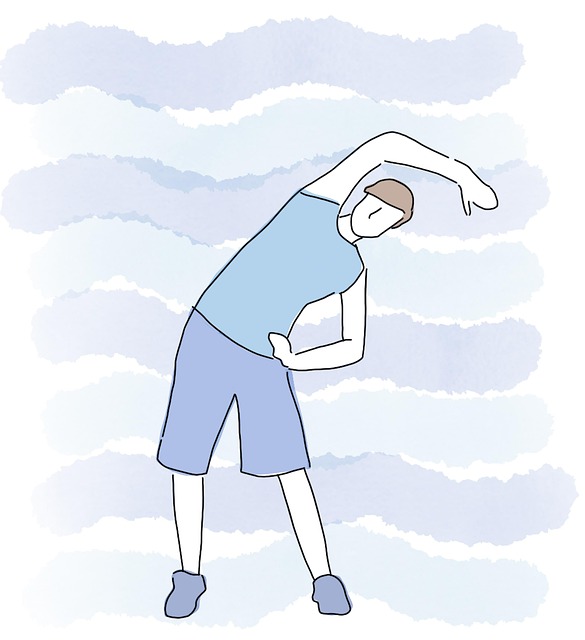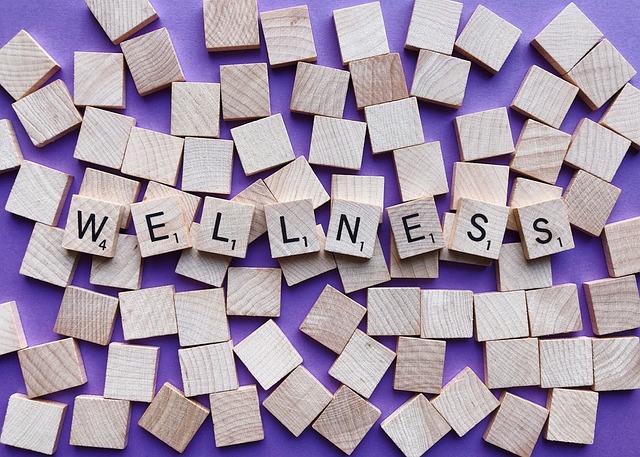Personalized regenerative plans offer a holistic approach to well-being, focusing on restoring and enhancing natural systems to improve quality of life. Unlike symptom-based treatments, these plans tackle root causes by nurturing physical, mental, and emotional health through mindfulness, nutrition, exercise, and community engagement. By fostering connections with nature and promoting sustainable living, personalized regenerative strategies empower individuals to thrive in a harmonious relationship with their environment, providing effective solutions for stress and chronic illnesses. These plans, incorporating advanced technologies and scientific knowledge, create targeted interventions based on individual needs, lifestyle, and health goals. Nature activities like gardening or wilderness retreats, combined with mindfulness practices, significantly enhance physical and mental health while fostering community engagement. Integrating social aspects into these plans is crucial for achieving holistic well-being.
Enhance your quality of life with regenerative practices—a holistic approach to well-being that goes beyond traditional care. This comprehensive guide explores various strategies, from personalized regenerative plans tailored to individual needs to the profound impact of nature and outdoor activities. Discover how incorporating mindfulness, stress reduction techniques, and building strong community connections can lead to significant improvements in mental health and overall life satisfaction. Learn about effective ways to cultivate a regenerativе lifestyle that nurtures both mind and body.
- Understanding Regenerative Practices: A Holistic Approach to Well-being
- Personalized Regenerative Plans: Tailoring Solutions for Optimal Results
- The Impact of Nature and Outdoor Activities on Quality of Life
- Incorporating Mindfulness and Stress Reduction Techniques in Daily Routine
- Building Community and Social Connections for Enhanced Mental Health
Understanding Regenerative Practices: A Holistic Approach to Well-being

Regenerative practices are a holistic approach to well-being that aims to restore and enhance natural systems, ultimately improving the quality of life for individuals and communities. Unlike traditional approaches that focus on treating symptoms, regenerative practices tackle root causes by nurturing and revitalizing the underlying structures and processes. This includes personalized regenerative plans that consider unique individual needs, encompassing physical, mental, and emotional health.
These plans often integrate various techniques such as mindfulness, nutrition, exercise, and community engagement. By fostering a deep connection with nature, promoting sustainable living habits, and encouraging mental resilience, personalized regenerative strategies enable folks to thrive in a harmonious relationship with their environment. In today’s world, where stress and chronic illnesses are prevalent, embracing regenerative practices can be a game-changer, offering a vibrant and fulfilling way forward.
Personalized Regenerative Plans: Tailoring Solutions for Optimal Results

Personalized regenerative plans are transforming how we approach quality of life enhancements. Unlike one-size-fits-all solutions, these tailored strategies consider an individual’s unique needs, lifestyle, and health goals. By assessing factors like diet, exercise habits, mental well-being, and environmental exposure, experts can create targeted interventions that offer the best possible outcomes.
This personalized approach leverages advanced technologies and scientific knowledge to design regenerative programs. Whether focusing on gut health through microbiome restoration, optimizing energy levels through bioenergy medicine, or promoting mental resilience via mindfulness practices, these plans offer a holistic route to improved well-being. The result is a more fulfilling, vibrant life where individuals feel empowered to take control of their health and achieve their full potential.
The Impact of Nature and Outdoor Activities on Quality of Life

Nature and outdoor activities play a pivotal role in enhancing the quality of life, offering a much-needed respite from the constraints of modern living. Numerous studies have shown that connecting with nature can significantly reduce stress levels, improve mental well-being, and foster a sense of calm and clarity. Simple acts like taking a walk in a park, hiking through forests, or even sitting by a body of water can work wonders for our physical and mental health. These experiences allow us to unplug from the digital world, providing a refreshing change of pace that benefits both mind and body.
Regenerative practices that prioritize nature-based solutions, such as personalized regenerative plans, are gaining traction as effective ways to improve quality of life. These plans often involve tailored activities like gardening, wilderness retreats, or community clean-up events. By incorporating these outdoor experiences into daily routines, individuals can experience improved mood, increased energy, and a heightened sense of community. Moreover, engaging in regenerative practices allows us to become stewards of the environment, fostering a deeper appreciation for the natural world and inspiring positive changes in our relationships with ecosystems.
Incorporating Mindfulness and Stress Reduction Techniques in Daily Routine

Incorporating mindfulness and stress reduction techniques into daily routines is a powerful way to enhance quality of life through regenerative practices. By taking a few moments each day to practice deep breathing, meditation, or yoga, individuals can cultivate a sense of inner calm and reduce the negative impact of chronic stress. Personalized regenerative plans that include these practices not only improve mental well-being but also have physical benefits like lowering blood pressure and improving sleep quality.
Stress reduction techniques allow individuals to connect more deeply with their bodies and minds, fostering a state of balance and resilience. This heightened awareness can lead to better decision-making, improved relationships, and increased productivity. Moreover, integrating mindfulness into daily life encourages a more thoughtful approach to choices, promoting sustainable habits that support long-term well-being. Personalized regenerative plans that emphasize these practices are therefore not just about immediate relief but also about fostering a holistic, regenerative lifestyle.
Building Community and Social Connections for Enhanced Mental Health

Building strong community connections is a key aspect of enhancing mental well-being, especially within the context of regenerative practices that focus on holistic health. Personalized regenerative plans can include initiatives to foster social interactions, creating opportunities for individuals to build a sense of belonging and purpose. Whether through local support groups, community gardens, or collaborative art projects, these activities encourage meaningful relationships and provide an outlet for emotional expression.
By prioritizing social connections, individuals can access a powerful tool for stress reduction and improved mental resilience. The sense of community offers a supportive network that promotes open communication, empathy, and mutual understanding. This, in turn, contributes to a healthier mindset and overall quality of life, highlighting the importance of integrating social aspects into personalized regenerative plans.
Regenerative practices offer a holistic approach to enhancing quality of life, addressing physical, mental, and social well-being. By combining personalized regenerative plans with nature immersion, mindfulness, and community building, individuals can unlock their full potential for a happier, healthier existence. Implementing these strategies allows us to create a symphony of wellness that resonates in every aspect of our lives.
